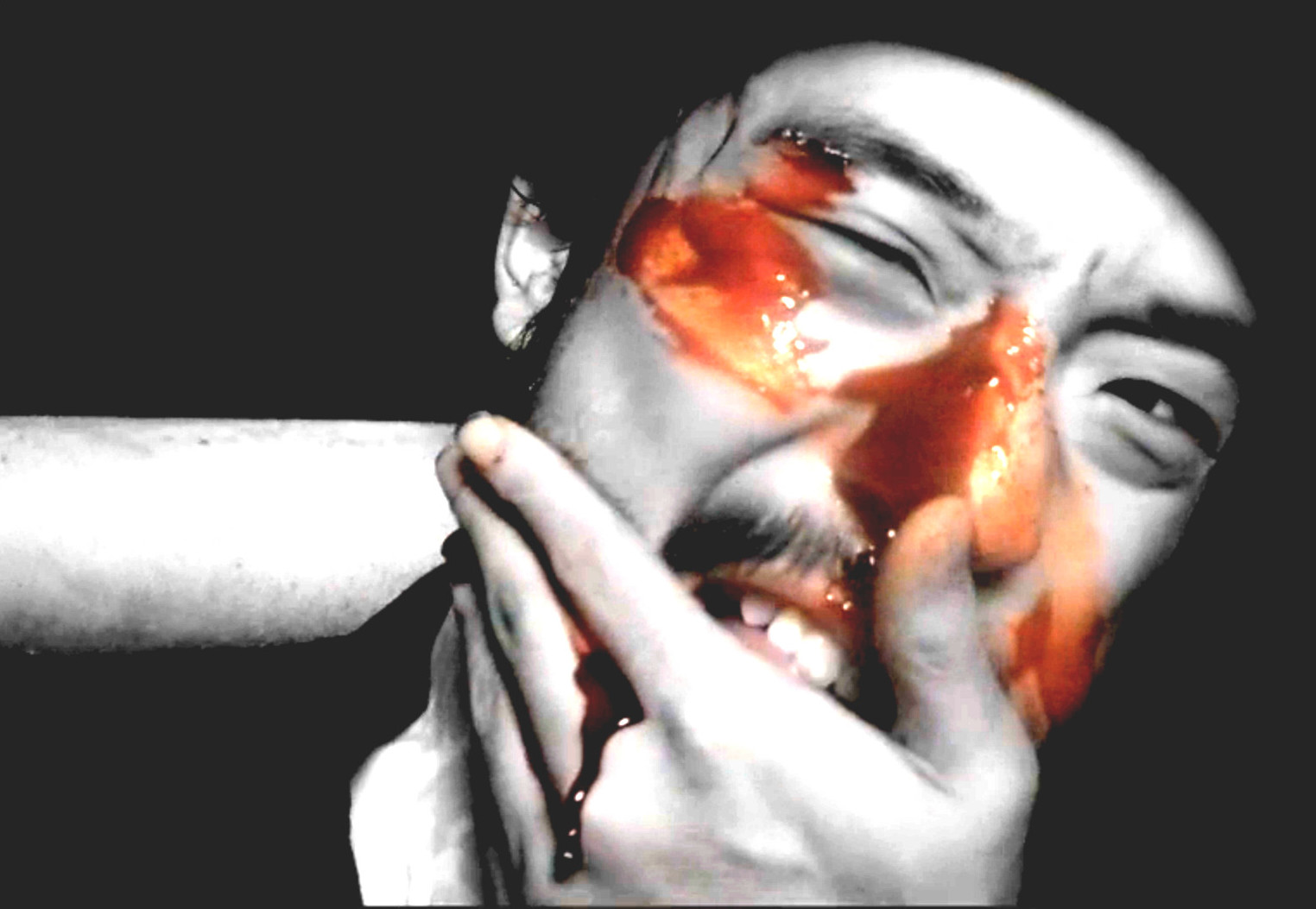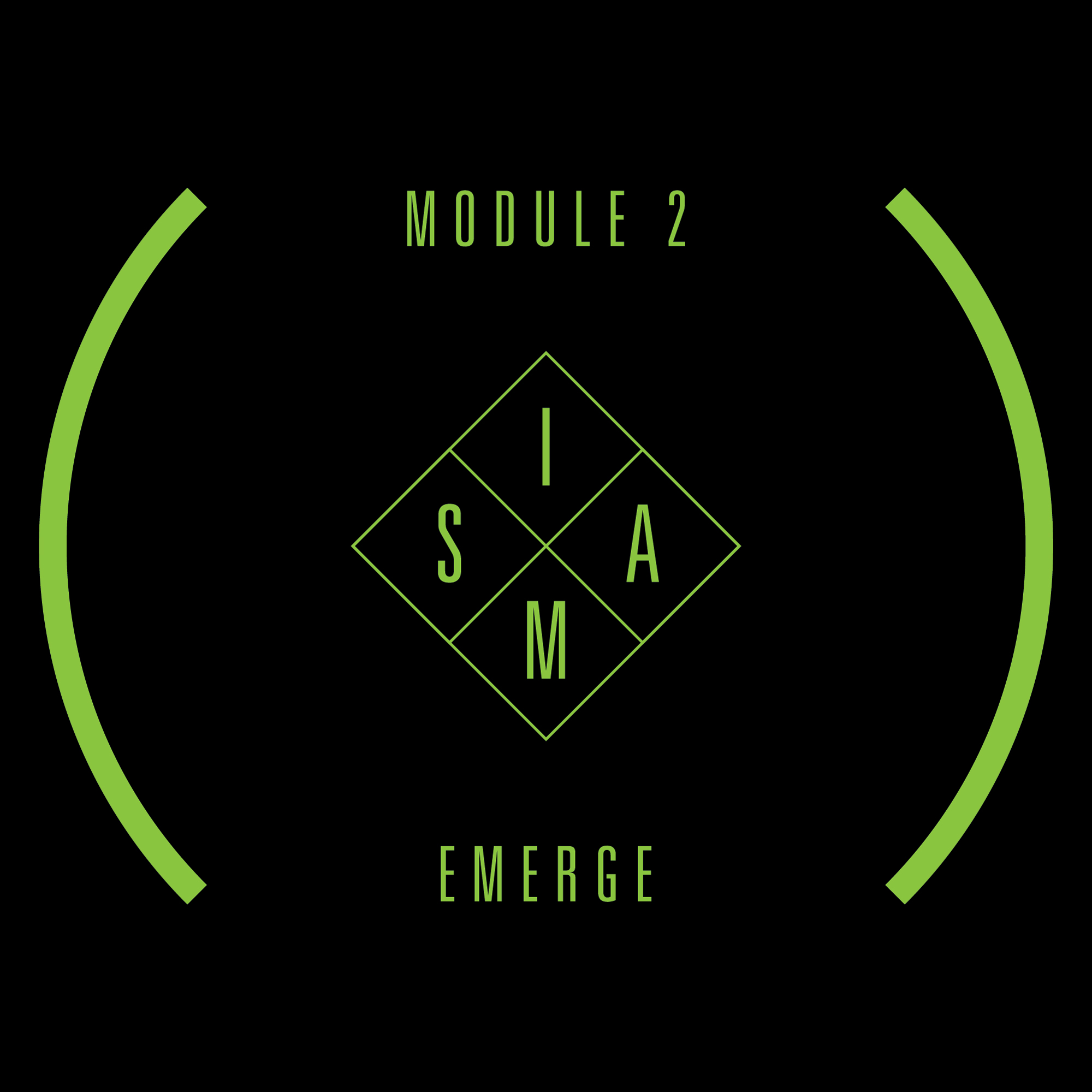Over the Dateline: 2016 Preview
By Josh, 2016年 1月 12日

Well, happy 2016! I’d planned to do the whole year-end recap post thing, but I got sidetracked by not being in and subsequently not wanting to think about Beijing. Luckily you can’t swing a dead cat without hitting an English-language China music blogger these days, so there are plenty of year-end lists if you’re interested. Live Beijing Music has the most comprehensive spread, with separate posts for best albums, best shows, best new bands, and a staggering 150-song playlist of 2015’s best China tunes. For a more concise year-end list, SmartShanghai’s Top 20 albums is worth a look. (Their Worst Music of 2015 is also pretty solid, thanks for the pangbianr shoutout!)
That’s the good. The bad and ugly have also been well covered elsewhere. China Music Radar accurately names “draconian oversight” one of three trends that defined the year for the Chinese music industry, and this was most acutely felt in Beijing. Of the many cancelations, the most perturbing was the blanket ban of Acid Mothers Temple guitarist Kawabata Makoto‘s planned March tour. The whole fiasco was analyzed most searingly by Yan Jun in this excellent op-ed for The Wire: “Drugs, Violence, Porno, Mafia, Anti-government, Anti-religion and Acid Mothers Temple”
As someone who’s had a hand in booking past China tours for Makoto, and having felt the pressure of the PSB’s hard squeeze this time, I can 100% relate to his intro:
Many concerned friends email and ask me: “Hi! What’s happening in China now? Are you OK? Can you still set up a gig for me there?”
I reply: “No. There are no more gigs in the Land Of The Dragon. Don’t bother me anymore. I’m not okay under the watchful eye of CCTV. I’m in hell now. Welcome to hell if you love it too.”
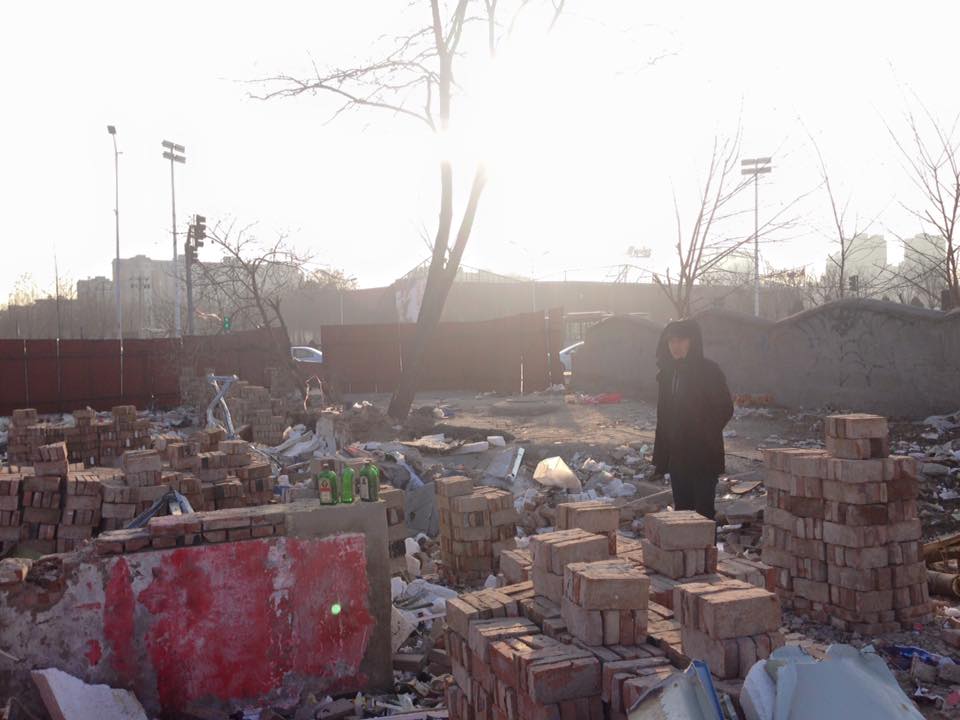
Demerit vocalist Li Yang standing in the wreckage of his club DMC, one of several venue casualties in 2015 (photo by Diana Pälviö)
The Kawabata crackdown was the beginning of the end for XP, one of a half-dozen independent music venues that closed this year in Beijing due to mounting economic and political pressure. As one of the only venues in town explicitly devoted to hosting difficult, weird, and non-musical “music,” XP’s July closure — along with that of Zajia Lab earlier in the year — marked a critical loss of space and place for Beijing’s dynamic experimental music underground to continue its unfettered discovery phase. XP and Zajia had facilitated a certain social nexus, a small but dedicated union of audience and performer — often with very porous lines separating one from the other.
Fortunately, some of the key players from that scene have started setting up in alternative, less traditional venues: the fRUITYSHOP vinyl store, hair-dresser/gallery Aotu Studio, multi-purpose event space Meridian (who had their own brushes with the law in 2015), inconspicuous public underpasses… China Free Improv threw a show in a cave last month, which looked (and sounds!) pretty great.
So that’s a silver lining. Consummate scene-watcher Edward Sanderson has a solid roundup of 2015’s ups and downs for the Beijing experimental music scene here: “A City with the Sound of its Own Making”
What’s Next
Besides all that bullshit, 2015 was actually a pretty great year for Chinese music. Tons of new labels, bands, producers, promoters, and fans to keep it all afloat. Here’s a taste of what 2016 has to offer, straight from the people who made 2015 such a musically strong, if politically and economically discouraging, year.
The New Labels

One great trend in 2015 was the emergence of a whole new category of labels, filling in the gulf between the few established, funded indie labels (Modern Sky, Tree, Maybe Mars), the mainstream pop industry above them, and the handful of DIY operations at the underground level. The most significant entrant on this front is D Force, a label and distribution arm of social network Douban, which covertly launched last January. I went in for a deep profile of D Force when they were readying their first major round of releases, you can read that here if you’re interested. My favorite D Force release to date is the debut of Chengdu’s Stolen, one of the most hotly tipped new bands of the year. Here’s a snippet from that:
D Force’s Publicity Director Zhao Yue lays out their 2016 gameplan:
Zhao Yue (D Force): It will be another busy year for D Force! We’ve already got several awesome records in the pipeline: 1) Duck Fight Goose’s first album in five years, Clvb Zvkvnft; 2) Dalian experimental rock outfit DOC (Dalian Obscure Club), which consists of previous members of Doc Talk Shock and Which Park — their debut is called Northern Electric Shadow; 3) Shanghai techno producer MHP‘s full-length record; 4) cult electro duo Wanderlust’s double-album, Neo-Taste, which is a sci-fi concept album. And we also JUST officially signed L.O.B.I., the brand new Beijing electronic duo consisting of Snapline singer Chen Xi and P.K.14 guitarist Xu Bo! New work from them will definitely come out this year as well.
For D Force Music, we will continue providing publishing/promotional services to more artists as we go along. We are honored to have gained the trust of indie labels such as Maybe Mars, System Error, and Mintone (明堂), and will continue to work with them and more labels and artists. We are also planning on other projects that will have some educational value, but I’ll remain quiet about the details for now!

Another label launched last year in a mist of vaguely tech-related funding is RAN Music, an electronic-oriented net-label founded by Shen Lijia. They’ve been releasing singles, EPs, albums, and well-produced live videos at a steady clip since launching with Luv Plastik‘s Electric Fantastic in May. The real hero of RAN Music so far has been longtime Beijing-based boom bap producer Soulspeak, who worked with the label for his full-length album, Flux, as well as an album for his Afro-jazz side project Flash Beats Bone. Soulspeak’s got another in the chamber for RAN, a collaboration with Shanghai-based jazz trumpeter Toby Mak. In the mean time, here’s a ripper from Flash Beats Bone’s debut:
Check the extensive interviews I did with the RAN Music team and with Soulspeak last year for more info. Here’s Shen Lijia on RAN’s next moves:
Shen Lijia (RAN Music): We are going to expand our family by focusing on, finding, and helping more young talents to release their music in 2016. We will try to bring our label night to other cities in China. I’m also thinking to organize producer workshops and gathering some alternative venues routinely, trying to build a community where people can exchange ideas.
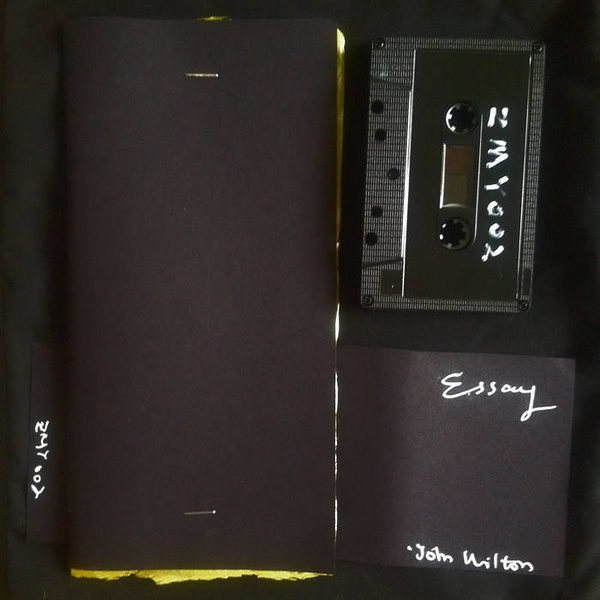
There was also some significant new label activity on the deep underground level. Long-running experimental music showcase Zoomin’ Night ceased its weekly transmission with the closing of XP, but more or less instantly transformed into a cassette label. Longstanding Beijing noise satellite Nojiji had something like a digital renaissance, uploading their entire back-catalogue to Bandcamp and hosting pop-up events around Beijing, most recently at Modernsky Lab. Here’s a 20-minute brainmelter from a Nojiji offshoot, the Raying Psychedelic Coalition:
I asked Zoomin’ Night’s Zhu Wenbo what he has planned for 2016 and he said, “其实现在并没有什么已经确定的计划,就先不写啦”. To the same question, Nojiji’s Sheng Di replied: “New year’s plan is to curse new year [wink emoji]”. Wechat stalking it is, then. Will post new moves from these old hands on pangbianr, as usual.
The Old Labels
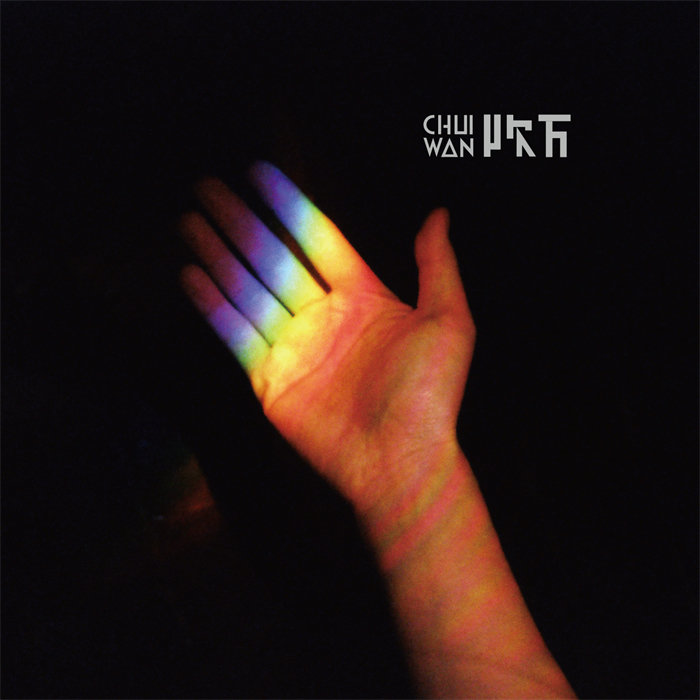
As for pre-existing labels: Maybe Mars had a pretty huge year. They released seven albums — most of them on both CD and vinyl — including debuts for widely lauded Chengdu post-punk quintet Hiperson and homegrown post-Joyside punk trio The Bedstars. (Read my lengthy Bedstars paean here.)
The standout for me was Chui Wan‘s sophisticated sophomore album, a real triumph for the newer generation of Beijing rockers who feed an active second life on the Beijing experimental/free improv underground into a mature finished project, freely mixing rich harmony and calculated discord. Case in point — the stunning music video for “The Sound of Wilderness”, which debuted on NPR during the band’s inaugural North America tour this past May:
Maybe Mars has another busy year scheduled: eight new albums, including fresh turns from established acts Alpine Decline, Demerit, and SMZB; a sophomore album for young turks Birdstriking, produced by Brian Jonestown Massacre’s Ricky Maymi; and debuts for The Fuzz from Xi’an, Run Run Run from Guiyang, and Beijing newcomers Gate to Otherside and Future Orients. All that plus a slew of vinyl reissues from their deep catalogue, and a monthly gig series called Independent China in Stereo, spotlighting out-of-town talent in the capital.
Always running semi-parallel, current Maybe Mars CEO Yang Haisong had a massive year himself. He lent his producer’s touch to the Hiperson debut, and contributed his studio and recording experience to exemplary long-players from Beijing bands well outside the Maybe Mars microcosm, including Nakoma (Nakoma) and Djang San Band (Bridges Parts 1 & 2). He put out an exploratory live improv album for his best-known band, P.K.14, an epic double LP of doleful shoegaze for his studio-only, husband-wife project Dear Eloise, and a freewheeling experimental album with Dalian post-rock giant Wang Wen‘s frontman Xie Yugang, on which Haisong draws more deeply on his background as a poet than he does in even P.K.14.
And he shows no signs of stopping in 2016:
Yang Haisong (P.K.14/Maybe Mars): In January of 2016, I’ll produce new Maybe Mars band Future Orients (formerly The Eat). And in March/April, I’ll work with The Fuzz for their new album. P.K.14 and Dear Eloise both have recording plans for new albums. And After Argument will release our third album soon, it’s been recorded for a year. It’s titled All Kinds of Lives.
My favorite record of the year was Yang Fan’s mystifying solo trip What Happened After 1,001 Nights?, one of a whopping 11 releases from DIY vinyl-only label Genjing Records. That spread them pretty thin financially, but Genjing’s Nevin Domer has a few tricks up his sleeve for the coming year:
Nevin Domer (Genjing Records): Genjing had tremendous blowout years for 2014 and 2015 and we now plan to slow down and focus on a few very special releases and collaborations. In 2016 we’ll be working with distinguished overseas artists as well as great local acts for splits and true collaborative pieces. I don’t want to reveal too much but one name that I will drop is ’90s indie godfather Tyson Meade pairing up with Chinese indie godfather Yang Haisong and a bit of Alpine Decline’s indie-mother mixed in for good measure. 2016 may see us slowing down, less to catch our breath and more to tune in with some deeper, heavier vibes certain to reward ears and minds.
Electronic Transmission
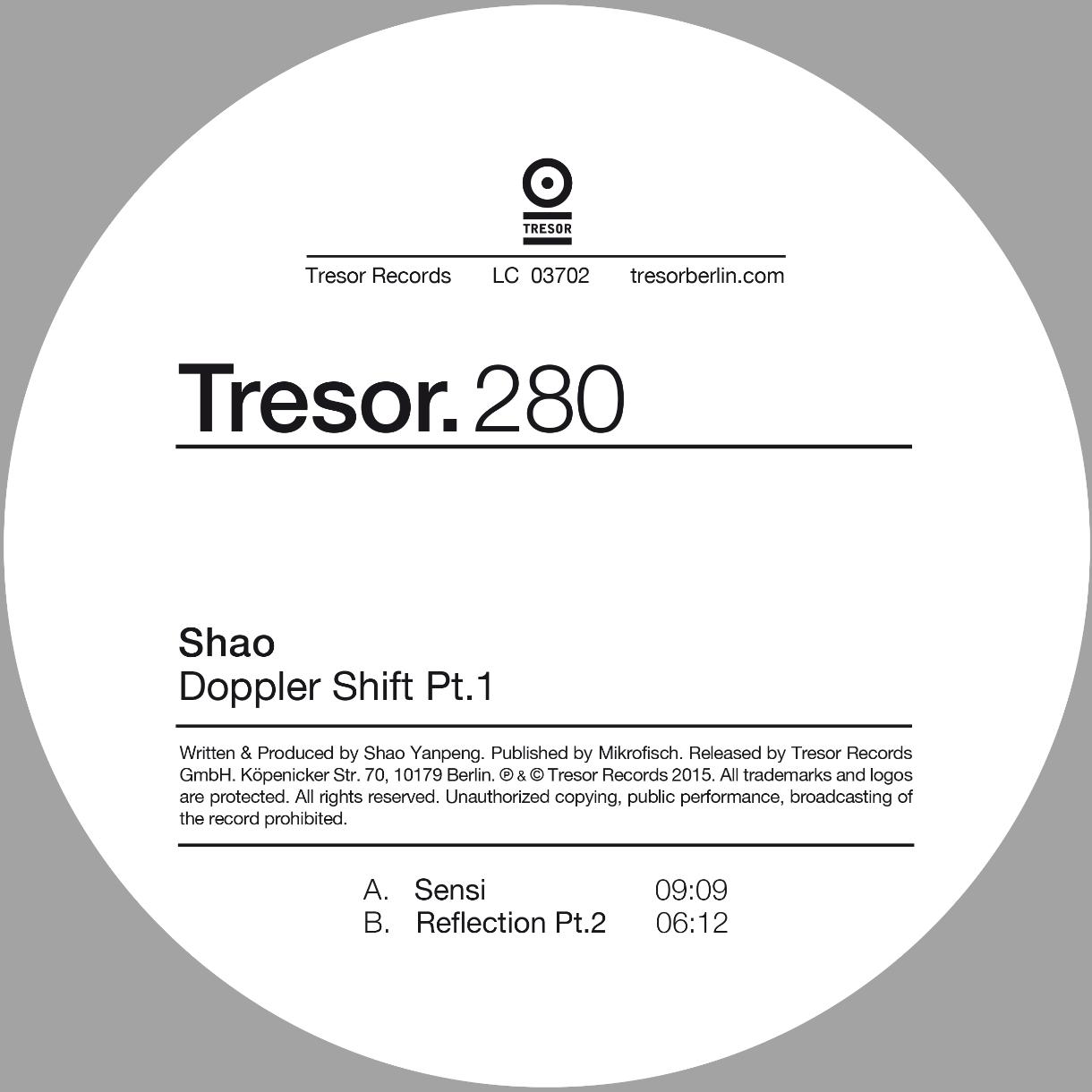
Touching on one more field in this wrap-up/preview: Beijing’s electronic music underground, which progressed on every level in 2015. Shao Yanpeng — formerly Dead J, now just SHAO — marked a major milestone with the release of his Doppler Shift Pt 1 EP on world-renowned Berlin techno tastemaker Tresor. As for younger blood, no one did more to push the freshest, grittiest, most forward-looking new electronic music from China than Howie Lee. Abroad, Howie represented his hometown with headlining sets at South by Southwest in Austin, TX and Shambala Festival in Northamptonshire, plus so many interviews, guest mixes, and profiles in the international music media echo chamber that I can’t even remember all of them. Howie capped off the year with the release of his latest, widely acclaimed full-length, Mù Chè Shān Chū, and the insane accompanying video for its penultimate track, “Beihai”:
At home, Howie pushed local forward motion via Do Hits, the party label he co-founded with Sulumi, Guzz, and Billy Starman in 2011. For their fourth anniversary, Do Hits launched a new label side of their operation with a compilation — Do Hits Vol. 1 — released in the form of a scratch-off lottery card. You can check an interview I did with Howie and Guzz at the time here. Since then, Do Hits has released two more compilations — with another on the way in early 2016 — as well as an EP for one of the label’s biggest early finds, ZHI16:
Check out all of the Do Hits releases here. Here’s Howie on the next moves:
Howie Lee (Do Hits): Plan for me :
– Asia tour in Spring, new audio-visual setup with percussionist Zhang Yang
– A new EP
– A new audio-visual project with Veeeky
– An interactive art project with Miao Jing
Plan for Do Hits:
– EP for ZHI 16, we’ll start to release EP’s on a monthly basis
– launch a new series called Motherland, presenting overseas Chinese artists to a Mainland crowd
– Do Hits compilation for Chinese New Year
For Do Hits we’re really looking forward to seeing how the producer scene grows in China, 2016 will be a very exciting year to look at.
Last up, moving a bit past the Beijing comfort zone: a major mention must be made of Shanghai label SVBKVLT. Founder Gaz Williams — who also runs Shanghai club Shelter, the best venue of its kind in China, arguably all of Asia — has been well ahead of the future-bass curve. He’s effectively served as Hyperdub’s envoy to China for years, and more recently has begun collecting the country’s (well, mostly Beijing/Shanghai’s) best experimental, underground, and progressive producers under the SVBKVLT umbrella (literally — the comp streaming above was released in the form of a parasol). SVBKVLT’s May release of Damacha’s schizophrenically sampled TuHaoJin was the high water mark of the year for me, as far as electronic/distantly “club” music goes. (I went flexi/cassette-digging with Damacha last Spring, scope that here.)
SVBKVLT’s Downpour compilation, released in September, stands as an index of just how diverse, cosmopolitan, international, and yet highly localized China’s electronic music scene has become, just a few short years after it produced almost nothing but straight-ahead house and techno. Closing this omnibus out, here’s Gaz on what’s next:
Gaz Williams (SVBKVLT/The Shelter): First release this year is Swimful‘s PM2.5 EP. It will come as a digital download along with a SVBKVLT face mask. Track list is still being confirmed but it’s looking like more of a mini album than an EP. Sweet grime, heartbroke dancehall and icy beats.
After that we have Laura Ingalls’ soundtrack for the upcoming movie Xiao Long Bao, Soulspeak’s lullaby/ambient album, hopefully some new Faded Ghost, and a few other things after that.
As for bookings, Kode9 is the only one so far [ed.’s note: Kode9 is coming back to Beijing/Shanghai in March], I think it will be billed as an Antidote party. I’ll let you know when I confirm anything else, got a few nice things in the works.
***
As for us…
Well, pangbianr won’t be doing too many bookings this year, but we’ll keep our online operations active. Tune in for ongoing gig updates, interviews, reviews, previews, post-views, analyses, a major redesign (hopefully), a handful of new contributors in the fields of food, film and art (probably), a steady flow of exclusive English-language translations of Chinese-only writings on underground music and culture (definitely), and whatever else worth doing that might crop up in 2016 and won’t put our names on any official radars or land our bank accounts in the red. Let’s do this!



